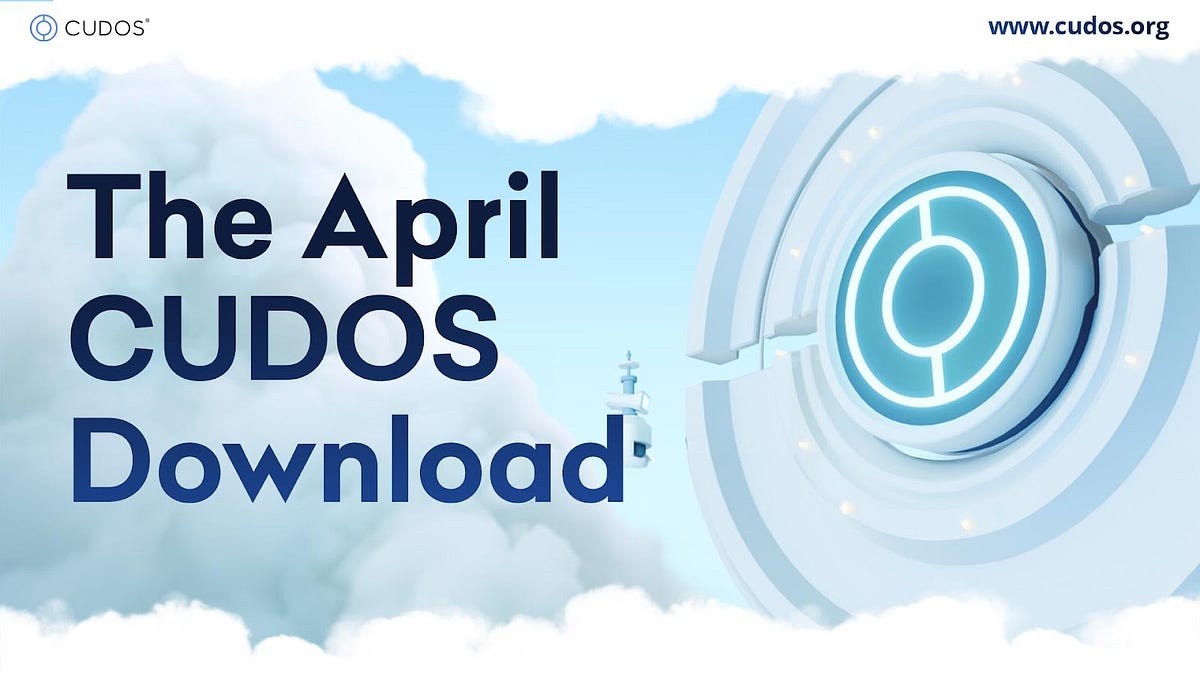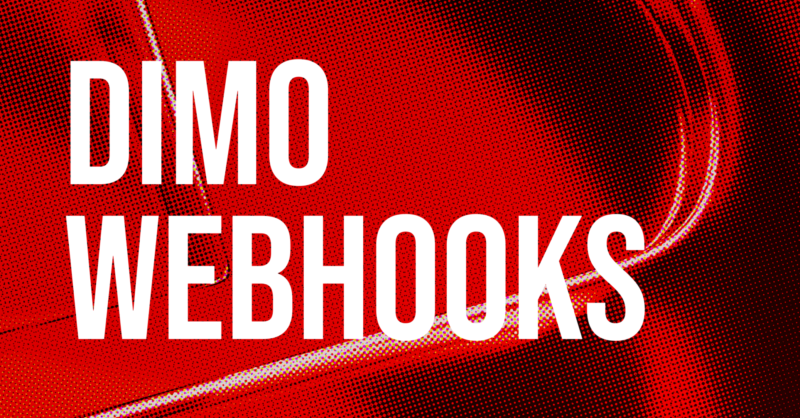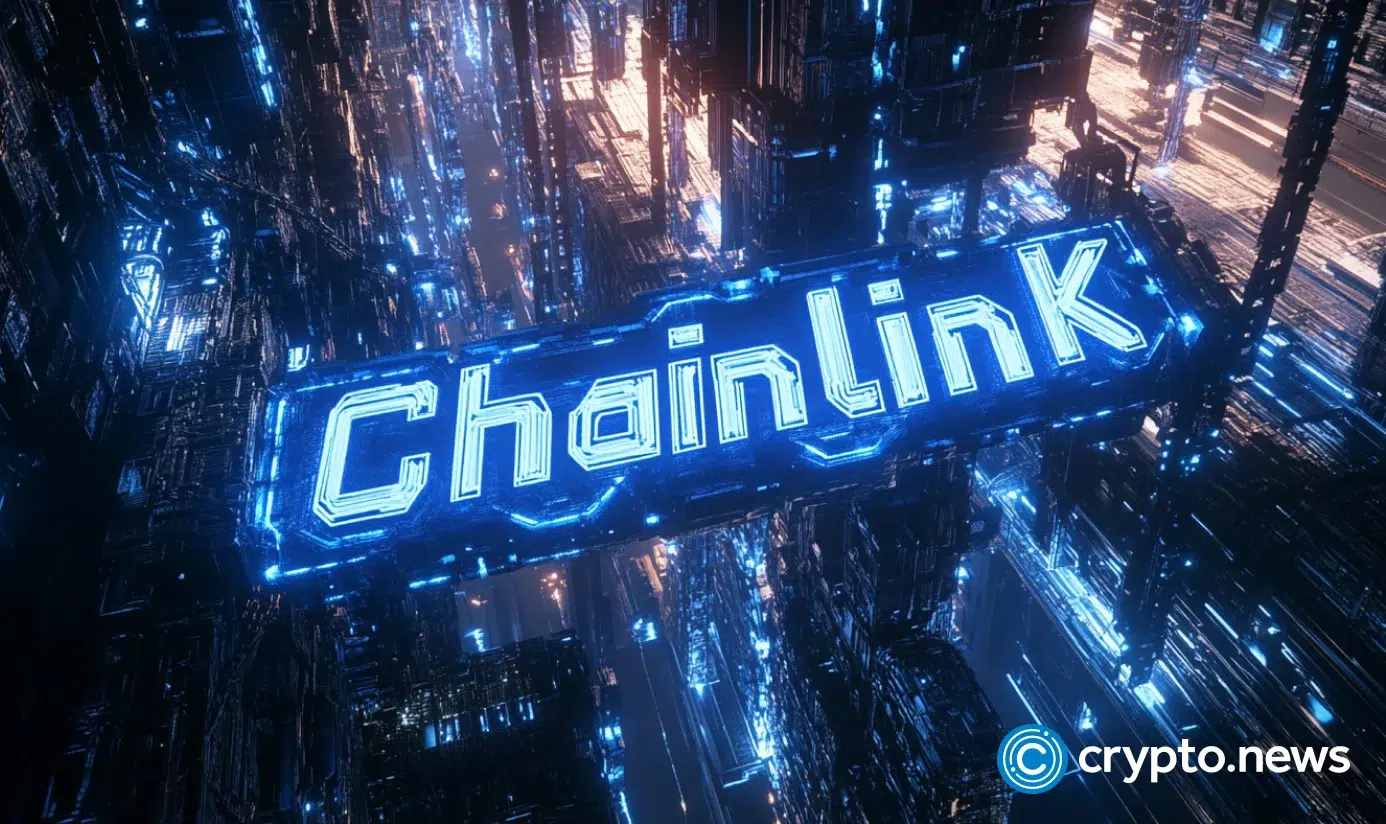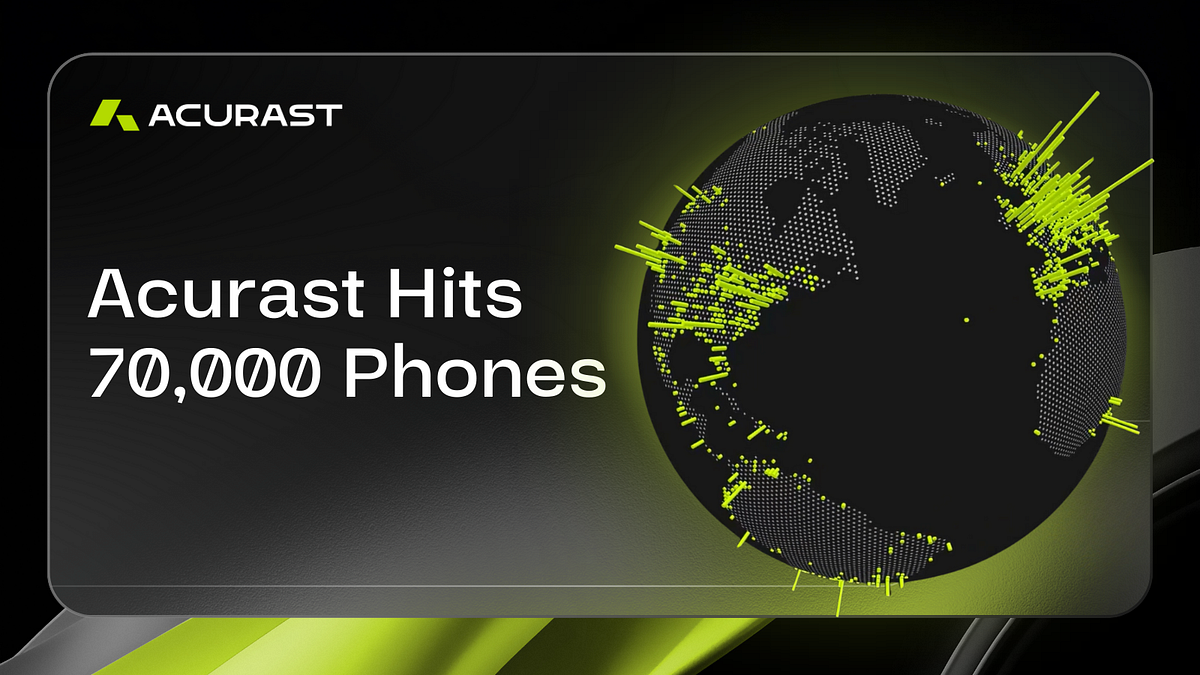Aethir and Return Entertainment Partner to Bring Decentralized GPU Cloud Infrastructure to Smart TV Gaming
Wednesday, August 21, 2024 1:01 PM
1,284

Aethir partners with Return Entertainment to bring decentralized GPU cloud infrastructure to smart TV gaming, unlocking a new audience for the gaming industry. By offloading GPU-intensive workloads to the cloud, players can enjoy premium cloud gaming with just a stable internet connection. The move follows Return Entertainment’s debut of Rivals Arena on Samsung TVs in the US, offering a QR code scanning gameplay experience. Aethir boasts the largest fleet of Nvidia H100 Tensor Core GPUs in the web3 industry, with a testnet for cloud gaming on Ethereum’s Layer 2 network. Samsung deepens its web3 gaming partnerships, including Illuvium, allowing Web3 TV owners to view in-game NFTs on their television devices.
Buy Now at
Related News

2 days ago
CUDOS Intercloud April Update: Record Growth and New InitiativesIn April, CUDOS Intercloud celebrated significant milestones and shared impressive metrics in its monthly update. The platform reported a record revenue of $204,505, alongside a remarkable 27% increase in GPU consumption, totaling over 300,000 hours. This growth reflects the rising demand for decentralized computing solutions, with more than 2 million GPU compute hours surpassed. CUDOS emphasized its commitment to transparency by providing real-time metrics on GPU capacity, VM deployment, user growth, and ecosystem spending, showcasing a clear distinction in cloud service delivery.
A notable highlight was the six-month anniversary of CUDOS's partnership with the Artificial Superintelligence Alliance (ASI). During this period, CUDOS has served over 15 million GPU hours and welcomed more than 30,000 users. The collaboration aims to build a decentralized compute layer that supports AI development without centralized bottlenecks. Additionally, CUDOS introduced "One Click Computing," allowing users to deploy AI stacks effortlessly, eliminating the complexities traditionally associated with AI deployment.
CUDOS also participated in the Ai2Peace initiative, focusing on using AI for global good. The platform's community rewards program concluded at the end of April, encouraging user engagement through referrals and feedback. Furthermore, CUDOS was represented at Paris Blockchain Week, where discussions highlighted the importance of permissionless compute access and the potential for blockchain to enhance AI's energy efficiency. As CUDOS continues to innovate and expand its offerings, it aims to foster a more sustainable and accessible computing environment for all users.

3 days ago
DIMO Network Launches Vehicle Events API for Real-Time NotificationsDIMO Network has officially launched its Vehicle Events API, a significant enhancement aimed at developers eager to create more responsive applications. This new API allows developers to set up webhooks, enabling real-time notifications based on specific vehicle conditions, such as odometer readings or speed limits. By minimizing the need for frequent API requests, this event-driven architecture opens up new possibilities for building intelligent, automated solutions within the DIMO ecosystem.
The Vehicle Events API simplifies the process of creating and managing webhooks through a straightforward JSON-based configuration. Developers can define the service, data points to monitor, trigger conditions, and notification frequency. Subscribing vehicles to these events is made easy with a single request to the Subscribe All endpoint. Additionally, the DIMO Developer Console has been updated to provide a user-friendly interface for configuring webhooks, making it accessible for both developers and managers.
With support for real-time alerts and plans for daily notifications, the Vehicle Events API is set to revolutionize how developers interact with DIMO vehicles. Updates to the Data SDKs in TypeScript, Python, and C# will further enhance the experience, allowing for more programmatic subscription methods. As DIMO encourages developers to explore the API, they anticipate innovative applications that leverage these new capabilities, marking a transformative step in the automotive tech landscape. More detailed insights into the Vehicle Events API will be shared soon on the DIMO Blog and through their monthly newsletter.

3 days ago
DeCloud Labs Proposes Final Migration from StackOS to StackAIDeCloud Labs has announced a significant shift in its focus from StackOS to StackAI, marking the end of support for the former and the beginning of a new chapter aimed at enhancing AI agents. After extensive discussions within the community, the company has decided to permanently close the migration process from StackOS to the new STKAI token on Solana. This decision comes in light of ongoing security concerns related to cross-chain bridges, particularly following the PolyNetwork hack, which prompted a reevaluation of their operational strategies. The migration period has provided StackOS token holders ample opportunity to convert their tokens, but the time has come to finalize this transition.
The proposal outlines the closure of bridge-based migrations and the establishment of a fixed supply of STKAI tokens, which aims to eliminate confusion surrounding token mintability. As of May 30, 2025, any unconverted STACKAI tokens will be airdropped as STKAI on Solana for those who opened support tickets prior to this date. However, any unclaimed tokens will be considered burned, thereby permanently removing them from circulation. This final step is intended to secure the integrity of the token supply and enhance clarity for both new and existing investors regarding the tokenomics of STKAI.
In conclusion, the DAO proposal emphasizes the importance of community engagement, allowing token holders to choose between remaining with StackOS or transitioning fully to StackAI. DeCloud Labs is committed to the development of StackAI moving forward, while also offering support to those interested in continuing the StackOS project. The final voting will take place across three instances to ensure all community members have the opportunity to participate, with the results communicated transparently to the community. This strategic move not only secures the future of STKAI but also addresses the pressing security risks associated with bridge infrastructures.

3 days ago
Alpha Liquid Fund Invests in $XNET Token Ecosystem to Transform Mobile ConnectivityAlpha Liquid Fund has announced a significant investment in the $XNET token ecosystem, reinforcing its commitment to innovative projects in the decentralized wireless (DeWi) sector. The XNET Foundation is at the forefront of transforming mobile connectivity by addressing the limitations of traditional network infrastructure. By utilizing blockchain technology on the Solana network, Citizens Broadband Radio Service (CBRS) spectrum, and Wi-Fi 6+, XNET empowers local builders to deploy LTE/5G or carrier-grade Wi-Fi in underserved areas. This community-driven approach not only reduces costs but also enhances scalability, offering resilient connectivity solutions that challenge conventional Mobile Network Operator (MNO) models.
Recently, XNET Mobile was recognized as an International Data Corporation (IDC) Innovator in DePIN for 2025. In April, the project achieved a notable milestone with a 16% increase in average daily data offload, showcasing its ongoing momentum. Wes Levitt, the Chief Investment Officer of Alpha Liquid Fund, emphasized the tangible impact of XNET, highlighting the consistent growth in data offload and the strong community support that fuels the network's progress.
Alpha Liquid Fund specializes in liquid digital assets, maintaining a 90-day liquidity threshold. The fund employs a rigorous fundamental research approach, investing in digital assets both on the open market and through OTC deals directly from crypto projects. By utilizing institutional hedging tools and diversifying across sectors and market caps, Alpha Liquid Fund aims to deliver strong returns with reduced volatility and risk compared to direct digital asset holdings. Meanwhile, the XNET Foundation continues to drive innovation in decentralized wireless networks, striving to create scalable and cost-effective mobile connectivity solutions globally.

4 days ago
The Graph Integrates Chainlink's Interoperability Standard for Cross-Chain GRT TransfersThe Graph, a prominent indexing and query protocol, has recently integrated Chainlink’s interoperability standard, marking a significant advancement in the cross-chain transfer capabilities of its native token, GRT. This integration allows users to bridge GRT across multiple blockchains, including Solana, Arbitrum, and Base. The Graph team emphasized that this adoption is a crucial step towards enhancing the accessibility and utility of GRT, particularly highlighting the potential benefits for the Solana ecosystem and the broader blockchain landscape.
The integration of Chainlink’s Cross-Chain Interoperability Protocol (CCIP) introduces a range of functionalities, including cross-chain staking, delegation, and query fee payments. This means that developers can now pay for queries on layer 2 chains using GRT, which is expected to streamline operations and enhance user experiences. However, the rollout of these features is contingent upon The Graph successfully launching the necessary bridging infrastructure, which is a critical aspect of this initiative.
Chainlink has been actively expanding its technology across the crypto industry, with CCIP gaining notable traction. Recently, CCIP went live on the Solana mainnet, which is anticipated to significantly boost decentralized finance growth by providing access to over $18 billion worth of assets on the chain. Additionally, Lombard has also integrated CCIP, showcasing the versatility and demand for cross-chain solutions in the blockchain space. Since its launch in 2018, The Graph has been a vital platform for developers to build and deploy decentralized applications across various networks, including Ethereum, Solana, and Arbitrum.

5 days ago
Acurast Reaches 70,000 Smartphones in Decentralized Compute NetworkAcurast, a decentralized physical infrastructure network (DePIN) based in Zug, Switzerland, has achieved a significant milestone by onboarding over 70,000 smartphones across more than 130 countries. This remarkable growth translates to over 250 million transactions and 10,750 secure compute deployments, all accomplished without the reliance on centralized data centers. Co-Founder Alessandro De Carli emphasized that this achievement is indicative of a transformative shift in infrastructure development, moving from traditional cloud servers to decentralized computing solutions that utilize everyday smartphones. The surge in user adoption has been fueled by the ongoing Public Token Sale on CoinList and the integration of the Solana community, enhancing the accessibility of Acurast's services.
The innovative approach of Acurast allows ordinary smartphones, including those that are old or damaged, to function as secure compute nodes. By leveraging modern Hardware Security Modules (HSMs), even lightweight devices can manage sensitive workloads while ensuring confidentiality and verifiability. This model eliminates the need for specialized hardware or mining rigs, making Acurast one of the most accessible DePIN projects available. In less than a month, the network saw an increase of over 10,000 newly onboarded devices, showcasing the rapid expansion driven by strategic partnerships and real-world applications, such as collaborations with FLock.io and HOPR.
Acurast's growth signifies not only a technical achievement but also a paradigm shift in global infrastructure development. Modern smartphones are now capable of rivaling traditional servers in performance while being more energy-efficient and widely distributed. Acurast's vision is to create compute hubs in homes, offices, and communities rather than in centralized data centers. By empowering individuals to contribute to this decentralized network with their existing devices, Acurast is paving the way for a more inclusive and powerful future in computing. As De Carli stated, this is the future they believe in, and they invite everyone to join the DePIN movement and participate in building the infrastructure of tomorrow.
Signup for latest DePIN news and updates